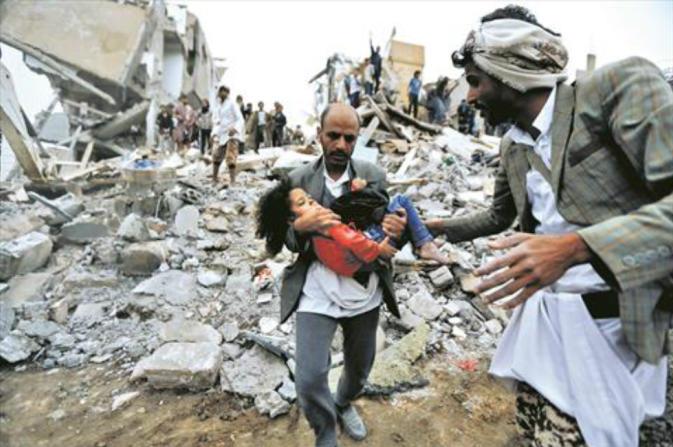A Tragedy in Yemen, Made in America

"When the Saudis buy weapons, they prefer to use the Foreign Military Sales
program (F.M.S.), meaning that the United States Department of Defense serves as
their broker. For a 2 percent administrative fee tacked on to the purchase
price, the Pentagon handles the logistics and liaises with the private companies
to fulfill the order. F.M.S., the mission of which is to ‘strengthen the
security of the U.S. and promote world peace,’ is actually overseen by the State
Department, which reviews all requests. More than 100 countries around the world
bought weapons from the United States this way in the 2017 fiscal year. Certain
countries can buy certain weapons systems directly from manufacturers, but the
Saudis like the politics of buying from the United States government and feel
they get more expeditious treatment from American companies when the Pentagon
speaks on their behalf.”
"On Nov. 28, the Senate voted on a resolution to open debate about ending the
American role in Yemen wholesale, and this time, it passed. But the White House
has threatened to veto any bill that would unwind American involvement in the
conflict and continues to vociferously defend its relationship with Saudi
Arabia. Earlier in November, President Trump put out an official statement
defending, in ‘mercenary’ terms, his continued support of the Saudis. ‘After my
heavily negotiated trip to Saudi Arabia last year, the kingdom agreed to spend
and invest $450 billion in the United States,’ the statement said. ‘Of the $450
billion, $110 billion will be spent on the purchase of military equipment from
Boeing, Lockheed Martin, Raytheon and many other great U.S. defense
contractors.’ (The State Department has acknowledged that only a $14.5 billion
deal had been made at present.)”
Yemen has been since March 2015 under brutal aggression by Saudi-led Coalition,
in a bid to restore control to fugitive president Abd Rabbu Mansour Hadi who is
Riyadh’s ally.
Tens of thousands of people have been killed and injured in the strikes launched
by the coalition, with the vast majority of them are civilians.
The coalition, which includes in addition to Saudi Arabia and UAE: Bahrain,
Egypt, Morocco, Jordan, Sudan and Kuwait, has been also imposing a harsh
blockade against Yemenis.
Source:AlManar
















